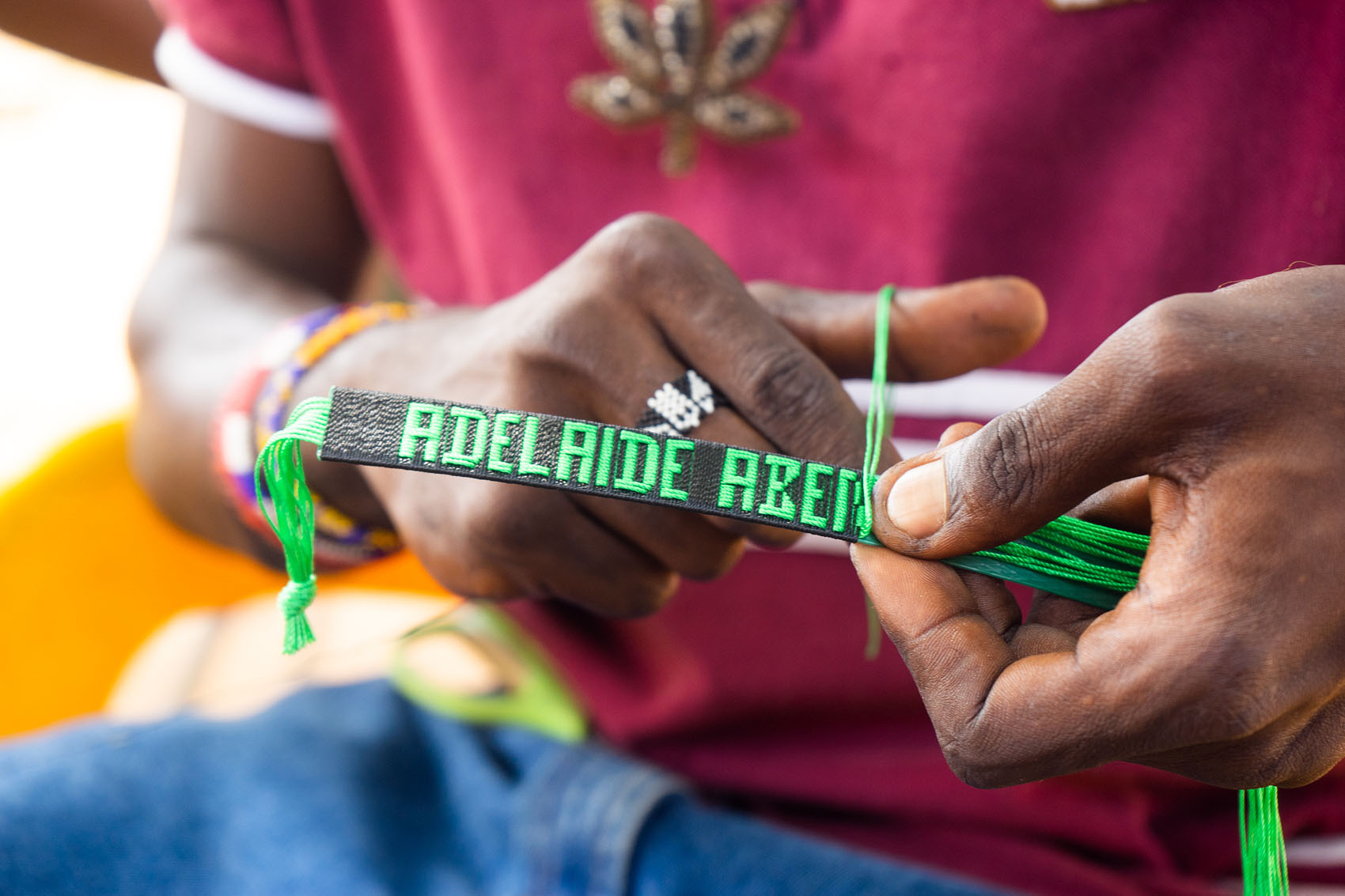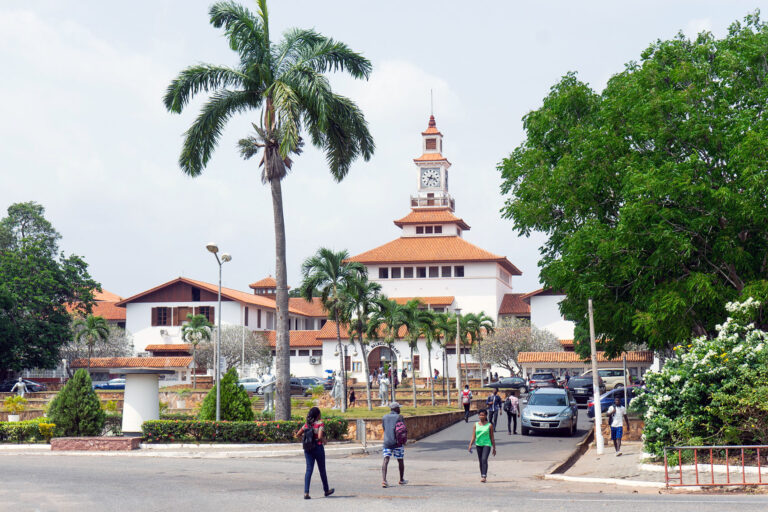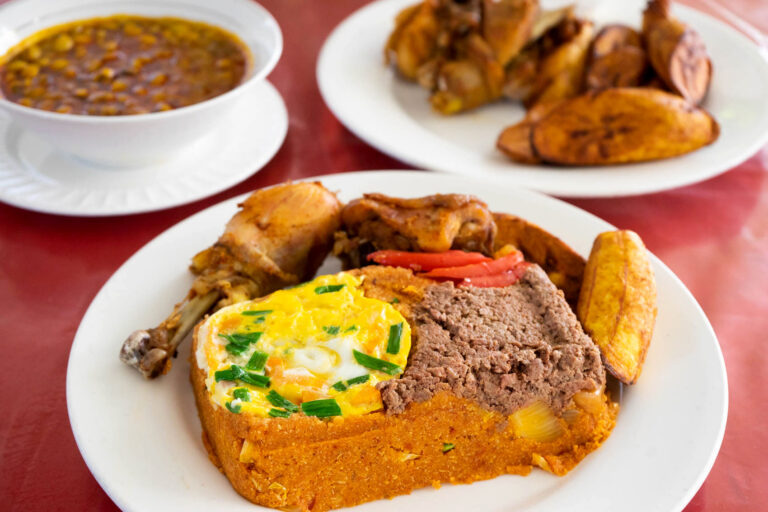The Culture of the Ashanti
Our two weeks in Kumasi provided us with a crash course in Ashanti culture. Even though the people have embraced Christianity to a suffocating degree, ancient traditions and beliefs are still very much alive. We’ve touched on the history of the Ashanti, but thought we should also highlight some of the coolest idiosyncrasies of their culture.

The Naming System
| Male | Female | |
| Monday | Kwadwo | Adwoa |
| Tuesday | Kwabena | Abenaa |
| Wednesday | Kwaku | Akua |
| Thursday | Yaw | Yaa |
| Friday | Kofi | Afua |
| Saturday | Kwame | Ama |
| Sunday | Kwasi | Akosua |
In the US, parents fret endlessly about what to name their forthcoming children. Should it be a family name? Should it be modern and striking? Or should it be classically beautiful? But in the Ashanti region, there’s no need to worry. Children are named for the day of the week on which they’re born:
Usually, the Ashanti will have at least two names — much like middle names in the US — and there is much more variety in the choice of the second name. Sometimes, these are Christian names (such as Richard or Eric), or they’re often ancestral.
While in Kumasi, we became familiar with our Akan names … I’m Kwaku, and Jürgen is Kwabena. It started as a joke, of course, but we soon realized that it was easier for our neighbors to remember us this way (“Jürgen” seems especially hard for Ghanaians to remember). Within no time, we had accepted and become comfortable with our new nicknames.
The Eight Abusua of the Akan
| Clan Name | Totem | Attribute |
| Aduana | Dog | Diligence |
| Agona | Parrot | Eloquence |
| Asakyiri | Vulture | Beauty |
| Asenie | Bat | Bravery |
| Asona | Crow | Wisdom |
| Bretuo | Leopard | Agressiveness |
| Okoyo | Falcon | Patience |
| Eukuno | Buffalo | Honesty |
One cool feature of Akan culture is that inheritance, including the royal succession, is matrilineal. So it matters not whether your father is king, little prince! The next king will be your cousin: the son of the king’s sister. Similarily, a person’s clan, or abusua, is determined by the abusua of their mother. Your father might have been a brave Asenie warrior, but if your mother was a wise Asona, so are you.
It was completely forbidden to marry within your clan … so although you could marry a cousin from your maternal uncle’s side, you could not marry a cousin from your maternal aunt’s side. If your mom was Bretuo, so was her sister… and all her sister’s children. Cousins from the paternal side, however, were all fair game!
Each of the eight Akan clans is represented by an animal which speaks to their nature. I’m not sure how “Vulture” managed to be the totem for “Beauty”, but I guess it’s all in the eye of the beholder!
The Akan Calendar
Math geeks, get ready for some fun! The Akan Calendar is based upon two types of week, both observed simultaneously: the six-day Nnanson and the seven-day Nnawɔtwe. By combining the two types of weeks, you arrive at a 42-day month, or Adaduanan, during which each possible combination of days from the Nnanson and the Nnawɔtwe is represented.
The days of both weeks have special connotations. The 5th day of the Nnanson, for example, is “Kwa”, meant to be a free day, for nothing. “Fida”, the 5th day of the Nnawɔtwe, meanwhile, is for fertility. So, you can just imagine what happens when those two days intersect to form the day of “Kwa-Afi”. Once every 42 days… it’s time for some fun!
Meanwhile, the first day of each Adaduanan, “Fɔdwo”, is a time for celebration… the current Ashanti king gathers together with other chiefs from around the region, and will visit the Royal Mausoleum in Kumasi to pay respects to the kings who came before him.
Depending upon your geek-level, you might have already calculated that the solar year (365.25) doesn’t divide cleanly into 42. There are either eight or nine Adaduanan every solar year… and once every few years, one of the Adaduanan has to be omitted from the regular cycle in order to “catch up”.


